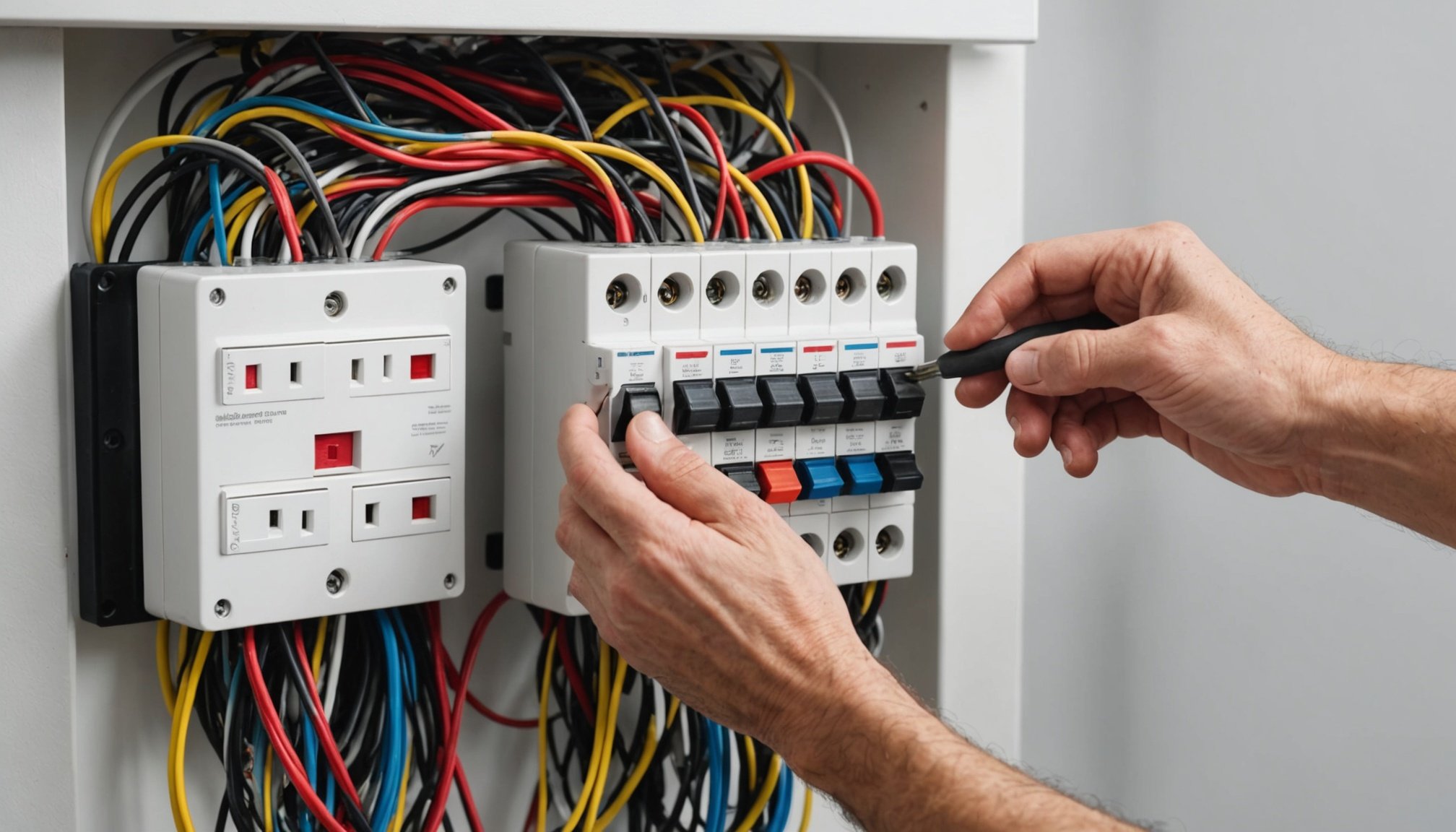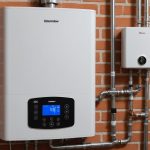Electrical wiring is a vital component of every home, yet it often goes overlooked until problems arise. Homeowners must prioritize safety and efficiency to avoid costly repairs and hazards. Small changes can significantly enhance performance and longevity. This guide offers essential tips tailored for UK homeowners to safeguard and optimize their electrical systems. With practical advice, you can ensure your home remains safe, energy-efficient, and equipped to meet modern demands. Taking proactive steps protects not only your property but also your peace of mind.
Understanding Electrical Wiring Systems
Understanding electrical wiring systems is crucial for UK homeowners to ensure safety and efficiency in their homes. A typical wiring system comprises several components, including cables, circuits, and distribution boards, each playing a vital role in delivering electricity.
A lire en complément : Ultimate Guide to Budget-Friendly Soundproofing Solutions for Bedrooms in the UK
The wiring layout in a home is akin to a roadmap, guiding electricity from the main supply to various outlets and appliances. Familiarity with this layout helps in troubleshooting issues and planning renovations. Moreover, it aids in ensuring that any electrical installations or modifications comply with safety standards.
There are several common types of wiring used in UK homes. Twin and earth cables are widely used for lighting and power circuits due to their reliability and ease of installation. For older homes, conduit wiring might be present, which involves running cables through protective tubes. Meanwhile, armoured cables are typically used for outdoor installations, offering enhanced protection against physical damage.
Sujet a lire : Unveiling the beauty of antique astronomical clocks
Understanding the basics of these systems not only empowers homeowners to make informed decisions but also enhances their ability to communicate effectively with electricians. This knowledge is essential for maintaining a safe and efficient electrical system in any household.
Safety Tips for Electrical Wiring
When it comes to electrical safety tips for homeowners, understanding and adhering to essential practices is paramount. Regularly inspecting your wiring can prevent potential hazards. Look out for signs like flickering lights, burning odours, or circuit breakers that frequently trip, as these may indicate wiring issues that need immediate attention.
Essential Practices and UK Regulations
Homeowners should always ensure that any electrical work complies with UK regulations. The UK has stringent safety standards to protect residents from electrical hazards. For example, Part P of the Building Regulations mandates that certain electrical work must be carried out by a qualified electrician. This ensures that installations are safe and meet legal requirements.
Recognising Wiring Issues
Recognising the signs of faulty wiring can prevent accidents. If you notice discoloured outlets or hear buzzing noises, these could be warnings of underlying problems. It's crucial to address these issues promptly to avoid potential dangers like electrical fires.
By following these wiring safety guidelines and staying informed about UK regulations, homeowners can maintain a safe living environment. Regular checks and professional assessments not only enhance safety but also ensure the longevity and efficiency of your home's electrical system.
Maintenance Procedures for Electrical Wiring
Proper electrical maintenance is essential for ensuring the longevity and safety of your home's wiring system. Routine checks and upkeep can prevent potential hazards and costly repairs.
Routine Checks and Maintenance Tasks
Homeowners should regularly inspect their wiring for any visible damage or wear. Look for signs such as frayed cables, loose connections, or discoloured outlets. These could indicate underlying issues needing immediate attention. Additionally, ensure that all electrical outlets and switches function correctly.
Importance of Professional Inspections
While homeowners can perform basic wiring upkeep, professional inspections are crucial. Qualified electricians possess the expertise to identify and rectify problems that may not be immediately apparent. Regular professional assessments ensure compliance with safety standards and can provide certifications that your system is in good working order.
Creating a Maintenance Schedule
Establishing a maintenance schedule for your electrical systems is a proactive approach to home safety. Schedule routine checks every six months and professional inspections annually. This helps in identifying potential issues before they escalate. By adhering to a maintenance schedule, homeowners can ensure their electrical systems remain efficient and safe, reducing the risk of electrical hazards.
Energy Efficiency Strategies
Incorporating energy-efficient wiring into your home can significantly reduce electricity costs and contribute to UK energy savings. Optimising your electrical system is not only beneficial for your wallet but also for the environment.
Tips for Optimising Electrical Wiring
To achieve energy efficiency, consider upgrading your existing wiring to support modern, energy-efficient appliances and fixtures. This may include installing smart meters, which provide real-time feedback on energy consumption, helping you to manage and reduce usage effectively. Additionally, using LED lighting instead of traditional bulbs can dramatically cut electricity use.
Benefits of Upgrading Appliances and Fixtures
Switching to energy-efficient appliances can result in substantial savings. Appliances with higher energy ratings consume less electricity, which translates into lower utility bills. Moreover, these upgrades often enhance the overall performance and lifespan of your devices.
Government Programs and Incentives
The UK government offers various programs and incentives to encourage homeowners to improve their home's energy efficiency. These may include grants, rebates, or tax credits for installing energy-efficient systems. Participating in these programs can offset the initial costs of upgrades, making it more feasible for homeowners to adopt sustainable practices. By taking advantage of these opportunities, you can enhance your home's efficiency while reducing your carbon footprint.
Hiring Professionals for Electrical Work
When it comes to ensuring the safety and efficiency of your home's electrical system, hiring electricians is a crucial step. Finding qualified professionals in your area can be a straightforward process if you know what to look for.
How to Find Qualified Electricians
Start by seeking recommendations from friends or family who have recently used professional electrical services. Online platforms and local directories are also valuable resources. Look for UK electricians with positive reviews and valid certifications, such as those registered with the NICEIC or similar organisations.
Questions to Ask Before Hiring
Before hiring an electrician, it's essential to ask pertinent questions. Inquire about their experience with similar projects, request references, and verify their qualifications. Additionally, ask about their availability to ensure they can accommodate your schedule.
Understanding Costs and Estimates
Understanding the costs involved in electrical work is vital for budgeting. Always request detailed estimates from multiple professionals to compare prices. Ensure that the estimates cover all aspects of the job, including labour and materials. Remember, while cost is important, the cheapest option may not always be the best. Prioritise quality and experience to ensure the safety and longevity of your electrical system.
Common Wiring Issues and Solutions
Understanding common wiring problems is essential for maintaining a safe and efficient home. Frequent issues include flickering lights, faulty outlets, and circuit breakers that trip often. These problems can stem from loose connections, outdated wiring, or overloaded circuits.
When facing minor electrical issues, homeowners can attempt some DIY solutions. For instance, if a light flickers, ensure the bulb is screwed in tightly or replace it with a new one. For outlets that feel warm, check for loose connections by turning off the power and inspecting the wiring. However, always prioritise safety by wearing insulated gloves and using the appropriate tools.
Despite the allure of DIY fixes, certain situations warrant professional intervention. If you encounter persistent issues or signs of serious trouble, such as burning odours or buzzing sounds, it's time to seek professional help. These can indicate more severe underlying problems that require the expertise of a qualified electrician.
Remember, while addressing minor issues can be cost-effective, ensuring the safety and integrity of your home's electrical system often necessitates professional assessment and repair. Balancing DIY efforts with professional services will help maintain a safe and efficient electrical environment.
Enhancing Home Electrical Safety and Performance
Incorporating electrical safety enhancements and optimising wiring performance are crucial steps in modern home improvements. Innovative technologies now available can significantly boost the safety and efficiency of your electrical systems.
Innovative Technologies for Electrical Safety
Recent advancements have introduced smart circuit breakers and surge protectors, designed to offer real-time monitoring and automated responses to electrical anomalies. These devices can detect potential hazards, such as power surges or overloads, and take immediate action to prevent damage.
Upgrading Wiring Systems for Better Performance
Modernising your wiring systems can lead to improved performance and safety. Consider using high-quality materials and advanced techniques to ensure your system can handle the demands of contemporary appliances. Upgraded wiring not only supports better performance but also reduces the risk of electrical fires and other hazards.
Importance of Surge Protectors and Circuit Breakers
Surge protectors and circuit breakers are essential components for maintaining a safe electrical environment. Surge protectors shield your devices from voltage spikes, while circuit breakers automatically cut off electricity in case of overloads or short circuits. Together, they form a critical line of defence against electrical mishaps, safeguarding both your home and its inhabitants.











